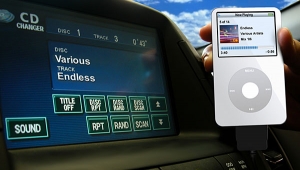| Columns Retired Columns & Blogs |
Technology advances have the potential to capture "you are there"-quality recording sessions. [When these are] wisely used, the consumer can hear more musical presentations. However, just because something can be manipulated doesn't mean it should be manipulated. "New" and "Improved" are not synonymous with each other, by default.


























